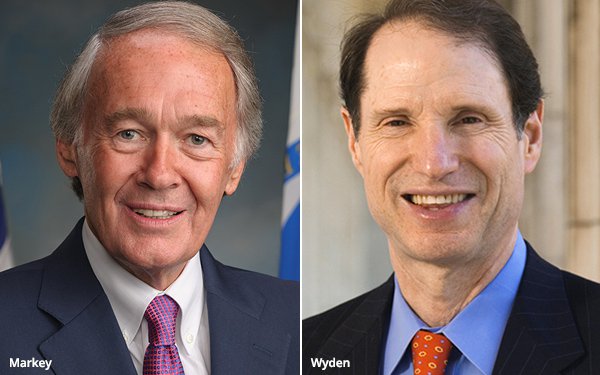
Democratic lawmakers on Thursday introduced
legislation to reinstate the lynchpin of the former net neutrality rules, which were passed during the Obama administration and prohibited carriers from blocking traffic due to its content.
The proposed Net Neutrality and Broadband Justice Act, unveiled by Senators Ed Markey
(D-Massachusetts) and Ron Wyden (D-Oregon) and Representative Doris Matsui (D-California), would classify broadband internet access as a utility service. That designation would unambiguously empower
the Federal Communications Commission to require broadband providers to follow some of the same common carrier rules that have long applied to telephone companies -- including prohibitions against
blocking or throttling traffic, and charging more for prioritized delivery.
advertisement
advertisement
FCC Chair Jessica Rosenworcel, a longtime supporter of net neutrality, expressed support for the bill -- though also
indicated the FCC could impose open internet rules regardless.
“While I trust the FCC has the authority it needs to adopt net neutrality rules, legislation that helps ensure it is the
law of the land is welcome,” she stated Thursday.
The advocacy group Free Press agreed. That group stated that it supports the proposed bill, but added that the FCC already can
reclassify broadband as a utility.
In fact, in 2015 the FCC voted to designate broadband access a utility service and to impose rules prohibiting carriers from blocking or throttling traffic,
and from charging higher fees for prioritized delivery.
That utility service classification also allowed the FCC to impose privacy rules on carriers. The agency moved forward with those rules
in 2016, when it voted to require broadband carriers to obtain subscribers' explicit consent before drawing on their web browsing behavior for ad purposes.
The following year, a GOP dominated
Congress revoked those privacy rules, and a Republican controlled FCC rescinded the decision to classify broadband as a utility, as well as the prohibitions on blocking or throttling traffic and paid
prioritization.
Former agency head Ajit Pai, who shepherded the repeal, called the prior rules “heavy handed.” But proponents say net neutrality rules are needed to prevent
carriers from interfering with traffic -- such as by censoring sites for political reasons, or hindering consumers' ability to access streaming video.
While the FCC may already have the
authority to restore net neutrality, it doesn't have the votes. The agency is politically deadlocked, with two Democratic commissioners and two Republicans, because the Senate has failed to confirm
President Joe Biden's pick for the fifth spot, ardent net neutrality proponent Gigi Sohn.
Sohn -- a distinguished fellow at the Georgetown Law Institute for Technology Law &
Policy -- previously served as counselor to former FCC Chair Tom Wheeler. She also co-founded the advocacy group Public Knowledge in 2001.
She has drawn the support of numerous groups that
support net neutrality, as well as from people who don't necessarily share those views -- such as former Fox executive and industry lobbyist Preston Padden.
Net neutrality opponents have also objected to
Sohn's nomination -- largely for questionable reasons. For instance, some opponents have said she would like to “censor” Fox News, despite her record as a strident First Amendment champion.
Still, the fact remains that the Senate
hasn't approved her nomination -- even though doing so would virtually guarantee that the FCC would pass net neutrality rules. Given that failure, it seems unlikely this new bill will gain much
traction.